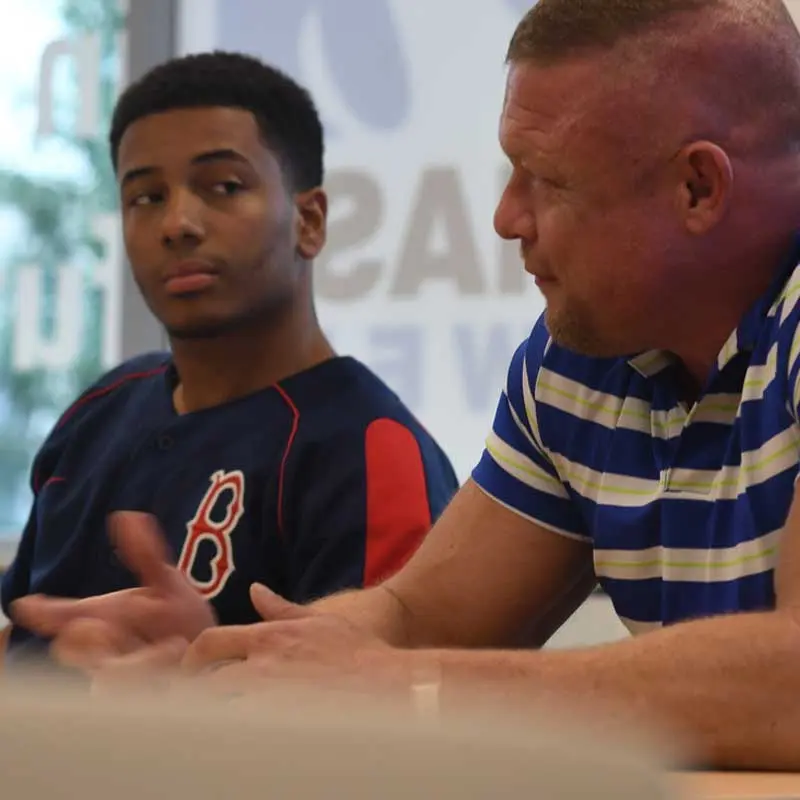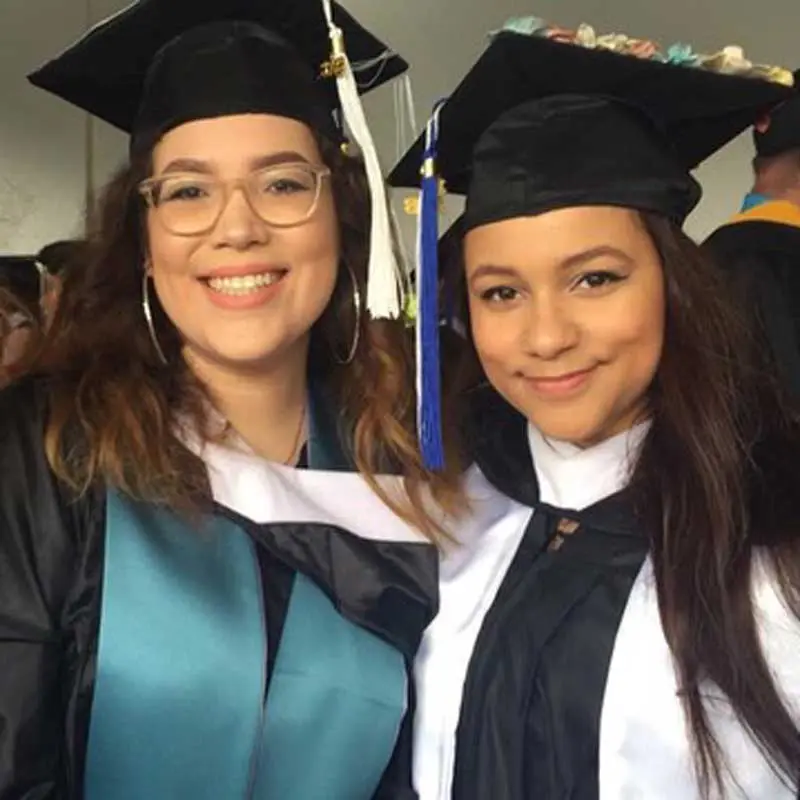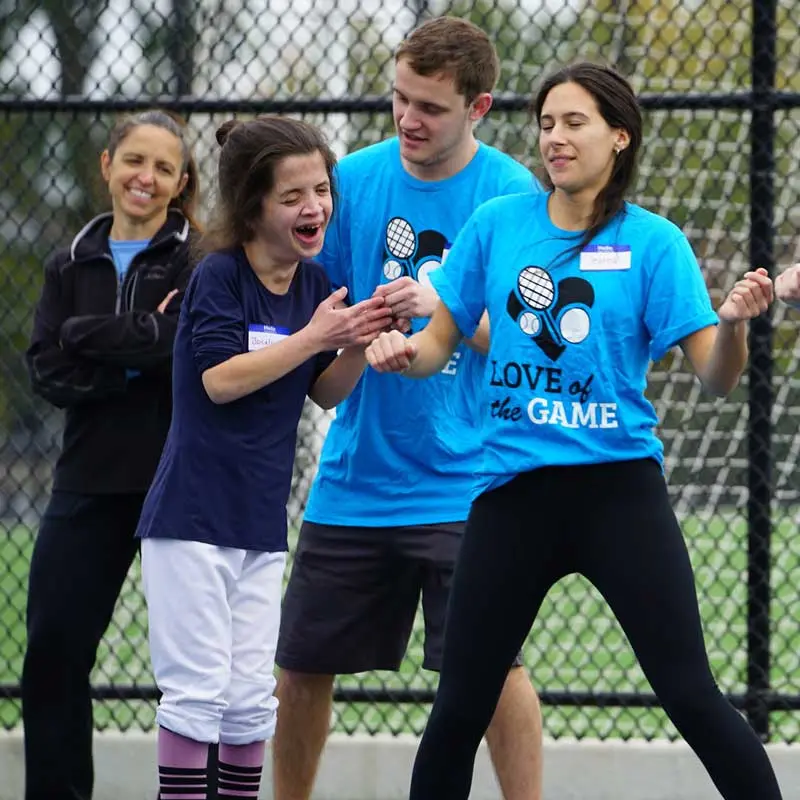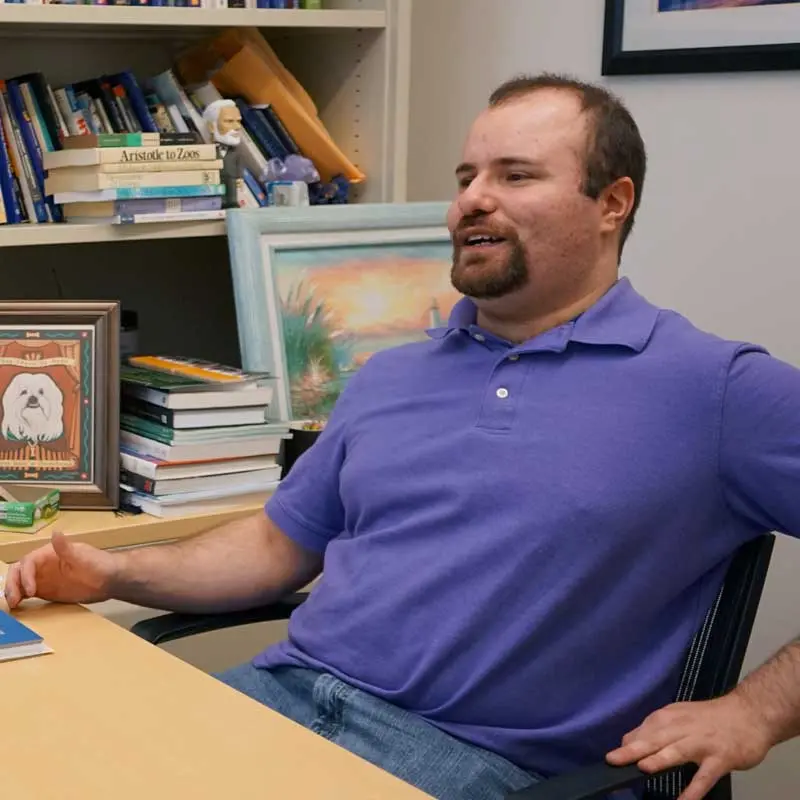What courses will you take?
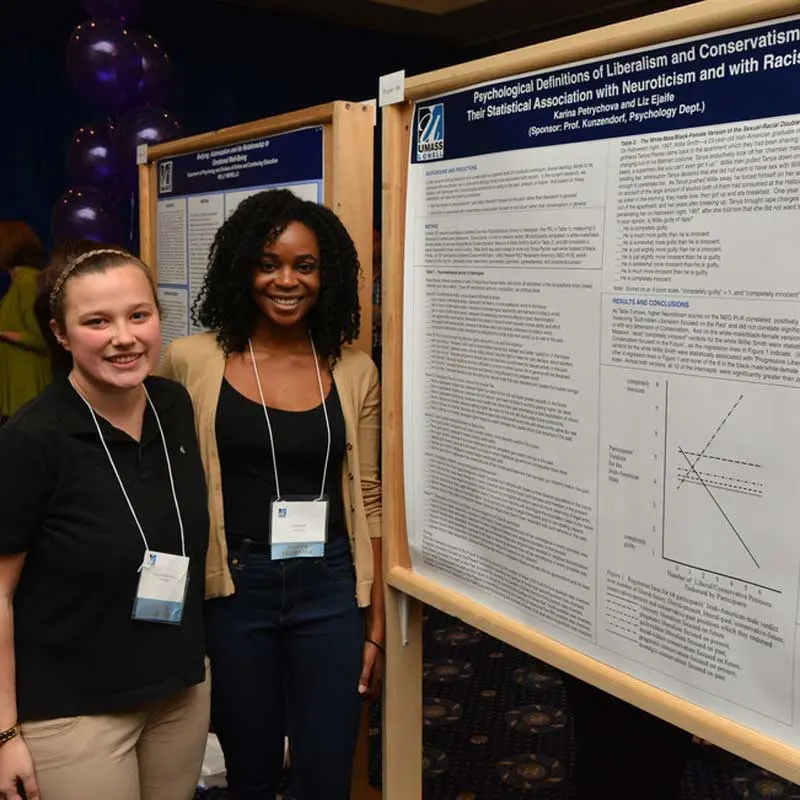
UMass Lowell's B.A. in Psychology program offers courses in experimental, developmental, social, community, personality and clinical psychology.
Campus and community-based learning experiences are integrated throughout our curriculum. You can further develop and apply your skills in an advanced two-semester field placement, often within Lowell. Courses for the General concentration
Choose one of our five concentrations, which lead to a wide range of career opportunities.
- Behavior Analysis Concentration — Gain an understanding of behavioral assessment and treatment in a variety of applications in the field of behavior analysis. You'll graduate ready for entry-level positions in various educational and human service settings. You will also be prepared for entry into graduate programs in behavior analysis. Courses for Behavior Analysis concentration
- Clinical Psychology Concentration — Pursue coursework, research, and fieldwork to understand clinical psychology as a science, and the best practices for pursuing diagnosis and treatment within the scientific paradigm. You will graduate prepared for entry-level positions related to the field, as well as entry into graduate study in areas such as social work, counseling, and school psychology. Courses for Clinical Psychology concentration
- Community Social Psychology Concentration — Engage in courses and fieldwork related to understanding how community-level interventions can influence individual health and well-being, and vice versa. Courses focus on issues related to reducing inequity and pursuing social justice and social empowerment. You will be prepared for entry-level work with a variety of community organizations, as well as preparation for graduate study. Courses for Community Social Psychology concentration
- Developmental Disabilities Concentration — Build a knowledge base in the rapidly developing field of disability studies, with an emphasis on the assessment and treatment of intellectual, developmental, and physical disabilities. You will be prepared for entry-level work in the assessment and treatment of disabilities, as well as for graduate-level study in areas such as autism studies and behavior analysis. Courses for Developmental Disabilities concentration
- Health Psychology Concentration — Learn how psychological knowledge and methods can be applied to health promotion and disease prevention and treatment. Gain work-ready skills and knowledge for entry-level work in hospitals and other healthcare settings that offer programs in areas such as sex education, smoking cessation, alcohol and drug abuse, healthful eating, and exercise. Courses for Health Psychology concentration
Visit the Academic Catalog for a complete course listing and to learn about the Psychology minor.

